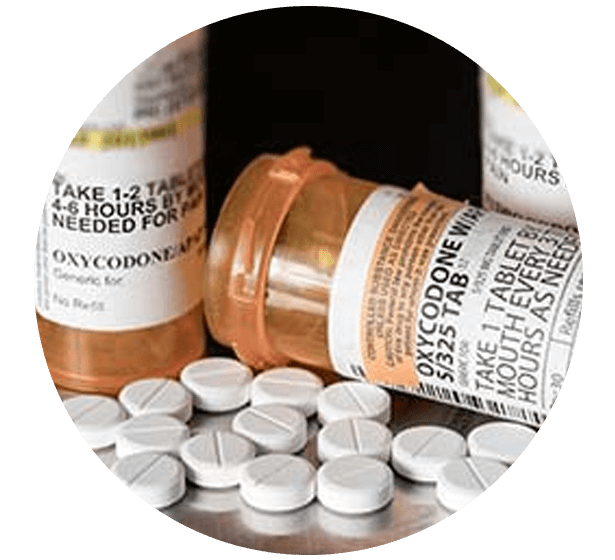Insight Into the Legitimate Utilizes Surrounding Oxycodone Consumption
Oxycodone, a powerful opioid medication, is usually a subject of conflict due to its possibility for abuse and dependency. Among these concerns, it is important to recognize the legitimate and necessary functions that oxycodone plays in the world of medical care. From providing relief to cancer people battling severe discomfort to aiding in post-surgical healing, the applications of oxycodone are far-ranging and impactful. Recognizing the nuanced circumstances in which this medication is appropriately used clarify the complex equilibrium in between its risks and benefits, prompting a deeper exploration into the globe of pharmaceutical treatments in managing serious discomfort.
Pain Administration in Cancer Sufferers
Pain management in cancer individuals is a critical aspect of their general treatment and treatment programs. People fighting cancer cells frequently experience differing degrees of pain, which can considerably influence their high quality of life. Effective discomfort administration not only minimizes physical discomfort however also deals with the psychological and psychological toll that chronic discomfort can tackle people.
Cancer cells discomfort can come from the illness itself, such as lump growth continuing organs or nerves, or as a negative effects of therapies like surgical procedure, radiation treatment, or radiation - Buy Oxycodone online. It is essential that doctor utilize a multidisciplinary technique to pain monitoring in cancer people, tailoring treatments to deal with the certain kind and source of pain experienced by each person
Therapy choices might include medicinal interventions like opioids, non-opioid anesthetics, and adjuvant medications, along with non-pharmacological strategies such as physical treatment, acupuncture, and cognitive-behavioral therapy. The goal of pain management in cancer individuals is not just to reduce pain levels however additionally to improve overall functioning and high quality of life throughout the course of their illness.
Post-Surgical Pain Alleviation
Following operations, effective administration of discomfort and promoting recuperation are vital facets of patient care. Post-surgical pain relief plays a critical duty in making sure clients' convenience and facilitating their recovery process. Oxycodone, a powerful opioid analgesic, is generally recommended for managing moderate to serious pain complying with surgical treatment.
Post-operative pain can prevent an individual's capacity to move, breathe deeply, and participate in vital activities for healing. Oxycodone assists ease this discomfort by binding to opioid receptors in the mind and spine, lowering the assumption of pain. By providing reliable pain alleviation, oxycodone allows clients to take part in physical treatment, improve their wheelchair, and stop complications related to inadequate pain control.

Persistent Discomfort Management
Effective monitoring of persistent pain is important for improving clients' top quality of life and functionality. Persistent discomfort, lasting for weeks to years, can dramatically influence a person's daily activities, mental health and wellness, and overall wellness. Oxycodone, a potent opioid discomfort medication, is commonly suggested to help manage chronic discomfort problems such as arthritis, fibromyalgia, and lower pain in the back when various other this page therapies have shown inefficient.
When made use of responsibly and under close clinical guidance, oxycodone can provide much-needed relief to people enduring from chronic pain. By targeting the central nerve system to modify the assumption of pain, oxycodone can help people reclaim flexibility, take part in physical treatment, her explanation and join tasks they take pleasure in. This, subsequently, can lead to enhanced mood, far better sleep, and enhanced total performance.
It is crucial for medical care suppliers to very carefully evaluate each patient's pain degree, case history, and risk factors before prescribing oxycodone for chronic pain monitoring. Routine tracking and modifications to the therapy strategy are needed to make sure the medicine's performance while decreasing the danger of dependence or abuse.
Palliative Treatment Use
When taking into consideration the broader spectrum of treatment past chronic pain monitoring, the use of oxycodone in palliative treatment settings ends up being a subject of substantial value. Palliative treatment objectives to improve the top quality of life for clients encountering serious ailments by addressing their physical, emotional, and spiritual requirements. Oxycodone, a powerful opioid analgesic, plays a crucial duty in palliative treatment by successfully managing serious pain that commonly accompanies advanced illnesses such as cancer, end-stage organ failure, or sophisticated neurological conditions.
In palliative care, oxycodone is prescribed carefully and under close guidance to relieve distressing symptoms, advertise convenience, and boost general health. The drug is customized per person's specific needs, making sure ideal pain relief while lessening possible negative effects. Healthcare suppliers in palliative treatment settings function carefully with clients and their families to develop individualized therapy strategies that focus on sign administration and psychological assistance.
Severe Injury Pain Control

However, it is important to emphasize the relevance of utilizing oxycodone responsibly and sticking strictly to suggested dosages to mitigate the threat of reliance, resistance, and prospective adverse results. Health care companies should very closely keep an eye on patients obtaining oxycodone for severe injury pain control to guarantee its effectiveness suffering administration while decreasing the probability of misuse or dependency. By incorporating oxycodone into a navigate to this site comprehensive discomfort management strategy tailored to the private needs of the individual, medical care experts can maximize treatment results and facilitate a smoother healing procedure from severe injuries.
Final Thought
In verdict, oxycodone functions as an important device suffering administration for numerous clinical conditions such as cancer, post-surgical recuperation, chronic discomfort, palliative treatment, and serious injuries - Buy Oxycodone online. Its efficiency in supplying relief to people experiencing extreme pain has been well-documented. When made use of appropriately and under medical supervision, oxycodone can significantly improve the lifestyle for people enduring from incapacitating pain
By supplying effective pain relief, oxycodone allows people to participate in physical therapy, enhance their wheelchair, and protect against complications connected with insufficient pain control.
Oxycodone, a potent opioid discomfort drug, is commonly prescribed to help manage chronic pain conditions such as arthritis, fibromyalgia, and lower back pain when various other therapies have actually shown inefficient.
Oxycodone, a potent opioid analgesic, is effective in offering relief from severe discomfort by acting on the main anxious system to change the understanding of pain. Health care providers must closely monitor clients receiving oxycodone for severe injury pain control to guarantee its efficiency in discomfort administration while lessening the probability of abuse or addiction.In conclusion, oxycodone serves as an important tool in discomfort administration for various clinical problems such as cancer, post-surgical healing, persistent pain, palliative care, and serious injuries.